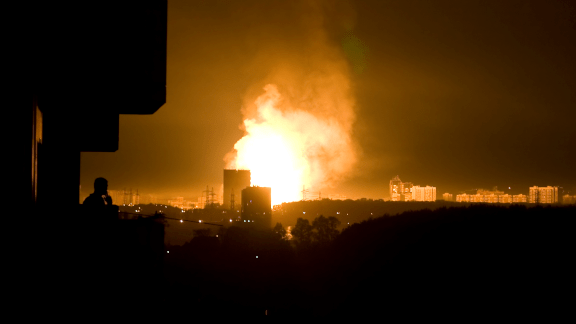TPC Group slapped with US$30m fine for Texas chemical blast

THE Texas Petrochemical Company (TPC) Group has been ordered to pay US$30m in criminal and civil fines over a chemical explosion at its Port Neches site which forced the evacuation of 50,000 people.
Two explosions occurred at the site in 2019, which caused the release of 5m kg of hazardous substances, and US$130m worth of property damage. Five workers at the facility suffered injuries, including concussions, burns, perforated eardrums, and tinnitus.
The Port Neches site produced the flammable chemical 1,3-butadiene, which is used in the production of tyres, latex, and plastics. The facility is now used by the company for storage purposes only.
TPC Group pleaded guilty to one count of failing to comply with the Clean Air Act (CAA) and take necessary precautions to contain hazardous substances in what the Justice Department have called an “entirely preventable accident”.
Failure to contain butadiene
When butadiene reacts with oxygen, it forms a hard substance called popcorn polymer, which can build up under high pressures and rupture processing equipment.
In its final investigation report, the Chemical Safety and Hazard Investigation Board (CSB) found that popcorn polymer had built up in a non-operational processing pipe in the South Unit of the facility.
The build-up caused the pipe to rupture, and 27,000 L of liquid, mainly made up of butadiene, was released. The liquid formed a vapour cloud and ignited, causing the initial explosion. Several more explosions followed.
Workers managed to contain the larger fires, but the report found that smaller fires continued to burn at the facility for more than a month.
Exposure to butadiene vapour has been linked to nausea and dizziness, and in extreme cases, death.
Known safety risks
The Justice Department and the US Environmental Protection Agency (EPA) found that TPC Group knew of the popcorn polymer forming in its piping but failed to prevent its growth or disposal.
Aside from criminal charges for failing to comply with the CAA, the firm was also charged with failing to comply with its own operating procedures, which included monthly flushing of production lines, which the EPA said would have prevented the incident.
Benjamin C Mizer, acting associate attorney general of the Justice Department, said: “This entirely preventable accident was the result of the company’s failure to take the necessary precautions to control a hazardous chemical even though it was well aware of the serious risks.
“Today’s criminal plea and settlement send a clear message that safety measures are not optional and that we will hold violators accountable.”
On top of the fines, TPC Group will spend US$80m to improve its risk management programme and safety at its Port Neches and Houston facilities.
Recent Editions
Catch up on the latest news, views and jobs from The Chemical Engineer. Below are the four latest issues. View a wider selection of the archive from within the Magazine section of this site.




